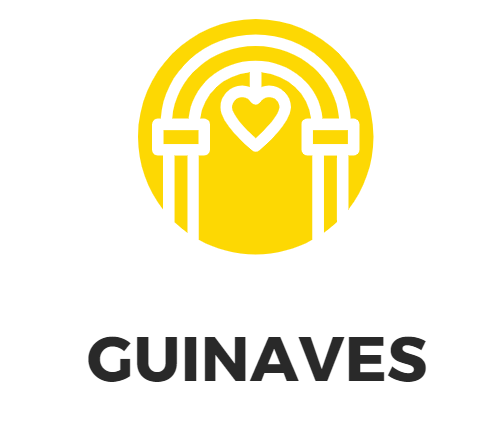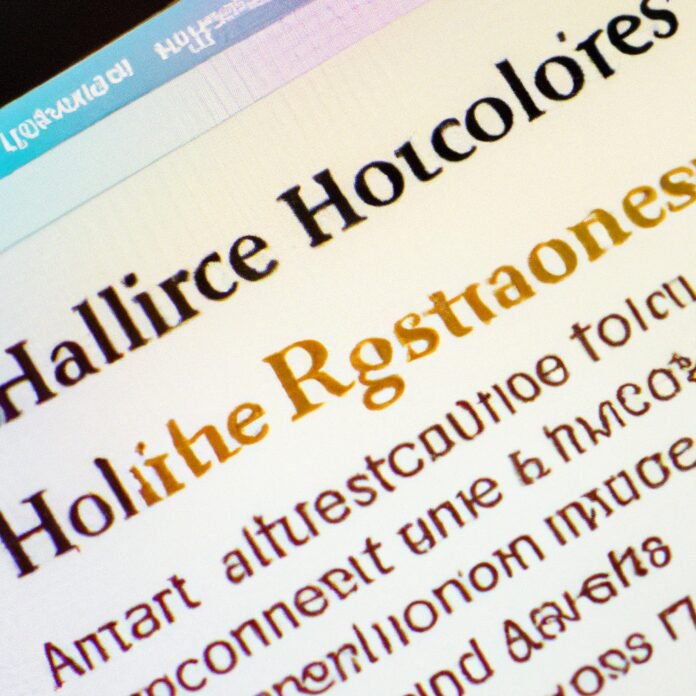In an age of infinite information, it can be difficult to make sense of the sheer volume of health advice that’s available at our fingertips. With all of the ‘clickbait’ headlines and outlandish health claims, it can be hard to know what is reliable and what is not. Thankfully, there are reliable online health resources available that can help you make informed decisions and understand health topics better. Read on to learn more about navigating the web for reliable information!
1. Exploring the World of Online Health Resources
The internet can be a great resource for those who are looking to learn more about their health. From finding online support groups, to educational websites, to health tracking apps, there is no shortage of online resources for you to explore. Here are some of the top online health resources that you should check out:
- Nutrition websites – There are a variety of nutrition websites available offering advice on healthy eating and healthy recipes. These online tools are great for anyone who wants to learn more about nutrition and make healthier eating choices.
- Fitness apps – Fitness apps are a great way to on track with your fitness goals. These apps can provide detailed workout routines, nutrition plans, and more, all tailored to your individual needs.
- Medical forums – Medical forums provide a platform for people to share their health journeys. They are great places to ask questions, share experiences, and connect with doctors.
- Patient treatment trackers – These tools allow you to keep track of your treatments, medications, and other health information. They can even be used to connect with health professionals online.
It’s important to remember that online resources should not be used as a substitute for professional medical advice. It’s always best to talk to your doctor if you have any questions or concerns about your health. Nevertheless, online health resources can be a valuable tool to help you learn more about your wellness and take charge of your health.
There are a wide variety of online health resources available, so don’t be afraid to explore all the options. With a little research, you can find the tools and websites that will work best for your individual needs.
2. Finding Reliable, Evidence-Based Practical Advice
One of the most important steps in understanding and tackling your mental health and overall wellbeing is to find reliable advice. The best thing about modern times is that you can now easily access evidence-based practical advice from a variety of sources online. Here is a list of a few ways to find reliable advice:
- Seek expert advice from certified psychologists,psychiatrists, and/or social workers.
- Explore online mental health websites, forums, and blogs to find advice from mental health experts.
- Make use of apps that specialize in recording your thoughts and provide calculators and trackers to monitor your progress.
- Tap into local support networks and seek advice from people who have gone through similar experiences.
- Read online resources like books, podcasts, and videos to find new tips and techniques.
Not all advice is created the same, so it is important to make sure that you are getting trustworthy advice with scientific backing. Mental health experts provide the most reliable advice because they are trained to understand and assess mental health issues in an unbiased way.
Don’t be afraid to research and evaluate new resources before implementing them in your life. Look for information that is backed by research and is rooted in evidence-based practices. It is always a good idea to get a second, third, or even fourth opinion if you have doubts about a particular advice-giver.
Finally, don’t forget to trust your intuition. It is easy to get sidetracked by the advice of others, but you are the best judge when it comes to what works best for you. Consider what feels right for you and your unique circumstance before making a decision. Consulting qualified health professionals is the best way to ensure that the advice you get is reliable and appropriate.
3. Getting the Most Out of Your Online Health Search
Finding the Right Sources
It’s important to keep in mind that not all health information found online is created equal. It’s crucial to make sure that any healthcare information you reference online is accurate and trustworthy. Some of the most reliable sources of information include:
- Reputable health organizations websites, such as the Centers for Disease Control & Prevention (CDC), National Institutes of Health (NIH), and American Heart Association
- Accredited academic medical centers and universities
- Verified health professionals such as doctors, scientists, and nurses
Getting the Most Out of Your Search Results
In order to get the most out of your online health search, it’s worthwhile to have a plan in place for narrowing down your results. An easy way to start is by taking the time to research the author of the article or webpages you’re looking at. Does the author’s credentials make them a reliable source? Or maybe the article is written by a healthcare professional such as a doctor, scientist, or nurse – these sources are usually much more reliable.
Once you’re satisfied with the sources you’ve found, don’t settle for a simple Google search. Expand your research and give yourself more information. Instead of a one-word search, try adding some qualifiers such as “latest research”, “source citations”, or “reviewed by experts” to make sure you’re getting the most up-to-date research results.
Search & Verify
One of the most important tips to keep in mind is to always search and verify your results. It’s important to double check the accuracy and reliability of any health information you read and reference online. This means reading from multiple sources, focusing on identifying any bias in source material, and making sure the source you’re following is accredited and reputable.
It’s also important to take the information you find with a grain of salt. Just because something is written online, doesn’t make it true. It’s always best to discuss any health concerns or questions with your healthcare provider, to get the advice of a doctor or professional.
4. Alternatives to the Web for Health Information
When it comes to finding health information, opting for alternatives to the web can be an option worth considering. In some cases, getting the information online may take a lot of time and effort for you to truly assess the credibility of the sources. In other cases, it may be overwhelming to parse through the available online material for the answers and information that addresses your query at hand.
Brochures and Pamphlets
In many cases, you can find helpful health information brochures and pamphlets in your doctor’s office, local libraries, at community wellness centers, and many other places. These materials are often sponsored by the government or local organizations and are often designed in simple language making them easier and more comfortable for a person to understand.
Help Hotlines
Help hotlines are great resources to be informed and seek accurate information about health matters. These hotlines often run 24/7 and are highly reliable options for obtaining health-related information. The personnel in charge are knowledgeable and experienced, making it easy for individuals to get their queries resolved in a timely and effective manner.
Books
Reading books on wellness and health can be beneficial. Books have been around for centuries and contain invaluable information regarding a variety of health topics. If you’re looking to gain more knowledge about a particular topic, reading a book can be the way to go. You can search for books related to health topics in online bookstores, libraries, and physical bookstores – either way, you’re certain to find material to learn and grow from.
Researching health topics on the internet can be overwhelming and challenging. But finding trustworthy information doesn’t have to be so hard. With the right tools and knowledge, you can save time and energy in your search for reliable health resources online. Empower yourself with the right information and use it to make the most informed decisions for your health and well-being.


